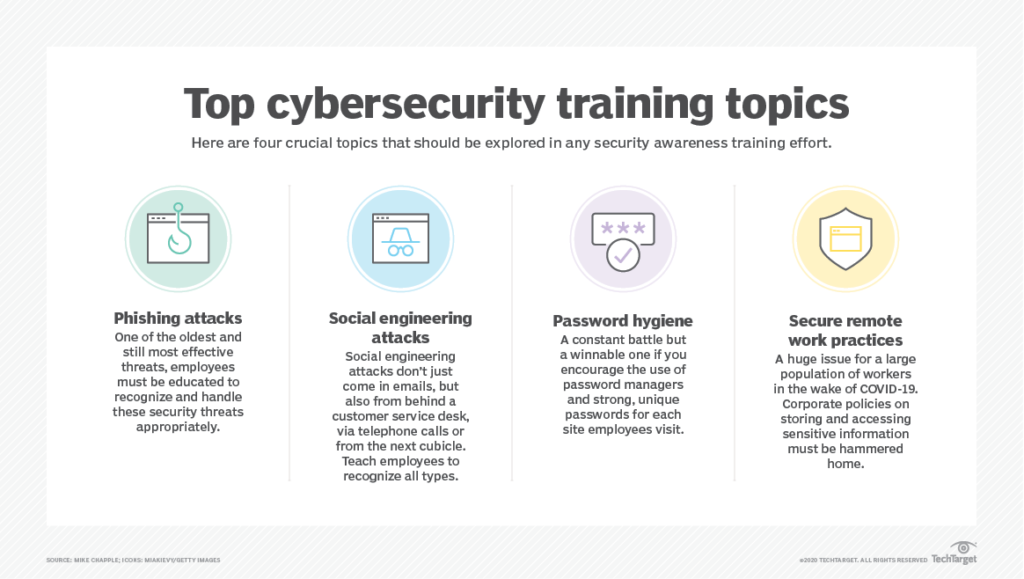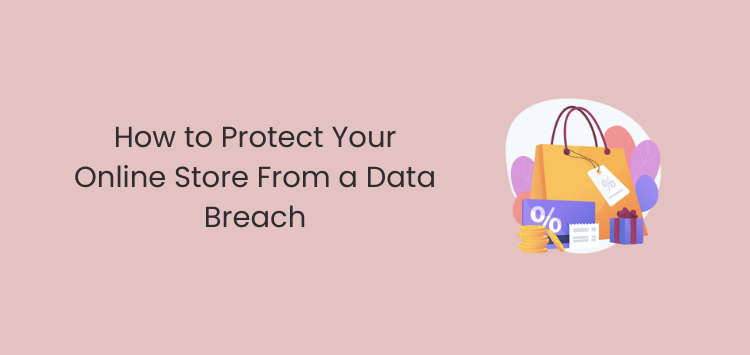No matter the context, online security is an important concern for any business that operates on the Internet. This goes doubly so in the case of online stores, in particular. Any online store represents an incredibly valuable honey pot of information that malicious third parties would love to get their hands on. Keeping this sensitive data safe is crucial. Efforts are being made to facilitate ways of attaining such a high level of security.
In today’s digital age, businesses must take steps to protect their online stores from data breaches. With the increasing number of cyberattacks, businesses should have a secure system in place to ensure that customer information is kept safe.
In this article, we will discuss the ways in which businesses can protect their online stores from data breaches. By taking the necessary steps, you can help ensure the safety of your customers’ data and your business’s reputation.
What Are the Dangers of a Data Breach?
The danger of a data breach, as such, is rather self-explanatory. By breaking down potentially inadequate security systems and faultily implemented safety measures, malicious third parties can cause substantial harm both to business entities and to individuals whose data said entities may hold. It is essential for businesses to take steps to ensure that their online stores are fully secure.
In broad terms, data breaches can lead to serious and far-reaching consequences that include financial fraud and identity theft, among other problems. If a person’s sensitive personal information such as their social security number, credit card numbers, and bank account information is exposed, they can be vulnerable to having their identity stolen or having their accounts hacked.

Additionally, data breaches can lead to major losses in revenue for businesses and organizations. The above graph shows the cost of data breaches per year from 2006 to 2022 in the United States.
Data breaches can also lead to problems that represent a whole different category of issues for enterprise-grade users, specifically. Losing trustworthiness is a hugely important consideration in this regard.
Why Are Online Shopping Services a Common Data Breach Target?
Online stores are a common target of substantial data breaches because they often hold a large amount of sensitive information, such as credit card numbers and personal identification information which are collated in the course of live chat interactions or when purchasing items from an online store. The graph below shows it ranks third among the most-targeted industries by cyber attacks in 2022, after financial and webmail services:

Hackers may be motivated to target online stores in order to gain access to this information and potentially use it for financial gains, as is often the case with identity theft or fraudulent credit card charges.
In addition, online stores may be targeted because they often have a large customer base, which means that a successful data breach could potentially impact a large number of people. This can make online stores a particularly attractive target for hackers.
Online stores may also be targeted because they may have less robust security measures in place compared to larger companies, making them more vulnerable to cyber-attacks. Notably, this is one of the problems that content outlined in this article aims to help enterprise-grade users avoid. Quite simply, an eCommerce website security implementation can always be bolstered further, and the importance of generalized data security should never be underestimated.
How to Protect Sensitive Data Used in Online Stores
Protecting an online store’s sensitive customer data comes down to a comprehensive combination of both proactive and reactive behaviors. An online business and its eCommerce sites need to be able not just to fend off malicious activity, but also to provide a way for owners to triage their eCommerce security implementations, should push come to shove.
This “shove” can take many forms, of course. Examples include hacking, phishing, and spamming, which can have serious consequences for both the store and its customers. Hackers may try to access sensitive customer information, such as credit card numbers and addresses, or may try to disrupt the store’s operations. Phishing scams may trick customers into giving away their personal information, and spamming can flood the store’s website with unwanted content.

To protect against these and other forms of malicious activity, online stores should implement security measures such as firewalls (see a list of the different types above), secure servers, and strong passwords, and should also educate their customers on how to protect themselves from scams. All of this, however, begins with a more generalized look at how the given online business operates in the first place.
#1: Security Audit and Evaluation
In this context, a security audit is an assessment of an online store’s security posture, and it can help identify potential vulnerabilities and weaknesses that could be exploited by attackers. During a security audit, a team of experts will review the store’s systems and processes, looking for any weaknesses or vulnerabilities that could be exploited. They may also test the store’s defenses against simulated attacks to see how well they hold up.

There are several benefits to conducting security audits for online stores. For one, it can help identify and fix any vulnerabilities before they are exploited by attackers. This can reduce the risk of data breaches and other security incidents, which can have serious consequences for both the store and its customers. In addition, security audits can help stores comply with regulations and industry standards, such as the Payment Card Industry Data Security Standard (PCI DSS), which requires merchants to maintain a secure environment for processing, transmitting, and storing credit card information.
It’s certainly also handy that security audits can help build trust with customers by demonstrating that the store takes security seriously and is proactive in protecting their personal and financial information. eCommerce security is important, but an online store absolutely needs to appear trustworthy in the eyes of its audience. It’s good news, then, that performing audits and security evaluations helps in this regard, too.
#2: Cloud and Data Security Implementation
The specifics on how to secure a particular eCommerce business or online store will vary wildly. eCommerce security solutions provide a huge number of uniquely tuned systems and features that work to keep your online store safe and to be able to sell stuff online without worrying about credit card details leaking out, for example.
One of the crucial basics of securing any given online system, be it a blog or a veritable eCommerce business, is to invest in a proper SSL certificate. Buy SSL certificate solutions to easily achieve a baseline of eCommerce security right off the bat. One’s ability to maintain a secure online store doesn’t end there, however.
Once your eCommerce business has been thoroughly audited, it’s time to deliver on the specifics:
- Confirm that your web hosting providers are trustworthy and secure
- Use encrypted checkout tunnels for payment processing
- Perform regular SQL checkups
- Keep your web server fully updated and patched
- Perform regular backups
- Implement a Website Application Firewall – WAF
- Carefully monitor eCommerce site upgrades (plugins, applets, etc.)
This shortlist will help you run a secure e-commerce platform for long stretches of time by ensuring data encryption and secure connectivity across the board.
#3: Employee Training
A given implementation of eCommerce security is only as good as the people using it are. Malicious software is hardly the only way for hackers and the like to gain access to customer data, and the maintenance of a secure platform and a reliable, trustworthy eCommerce store relies on trained and informed operators, to boot.
It’s self-explanatory, then, that security training is essential for online stores because it ensures that all employees are aware of the necessary security protocols and procedures. It also helps to ensure that employees are familiar with the latest security technologies and best practices for protecting customer data. This is especially important for businesses handling sensitive customer data such as credit card numbers, addresses, and login credentials. By properly training employees, online stores can ensure that customer data is kept safe and secure.

Additionally, employee training can help to create a culture of security within the business. This can help to ensure that all employees take the necessary steps to protect customer data, as well as helping to prevent malicious actors from gaining access to the store’s systems. By providing regular training on the importance of data security, online stores can help to ensure that customer data is always kept safe and secure.
#4: Staying Up-To-Date on Developing Security Trends and Relevant Threats
It’s a simple statement of fact that, as eCommerce security advances, so too do threats associated with it. It is of immense importance for online stores to stay up to date on the latest security trends in order to protect their customers’ data. This includes staying informed on new developments in encryption protocols, malware protection, and access control policies.
Additionally, online store owners should stay well informed of the latest security best practices, such as creating strong passwords and using two-factor authentication. By staying informed on the latest security trends, online stores can more easily stay ahead of the proverbial security curve, which in turn may help assuage any future threats in the first place.
Final Remarks: No Security System is Completely Impenetrable
The security of an online store is of paramount importance, and the potential consequences of a data breach can be serious. It is therefore essential for online businesses to take the necessary steps to protect their stores from malicious attacks. This includes performing security audits and evaluations, implementing cloud and data security measures, providing employees with training on security protocols, and staying up to date on developing security trends and threats.
By taking the necessary steps to protect your online store from data breaches, you can help ensure the safety of your customer’s data and your business’s reputation.
Yet, it’s worth remembering that contingencies are a common recommendation for good reason. As comprehensive and reliable as an eCommerce site security implementation might be, there’s always the possibility of a well-prepared and well-motivated malicious third party breaking through. eCommerce business owners ought to be set up for any eventuality, then, because nowhere does ample preparation pay off quite as much as it does in the context of an eCommerce website.
Author Bio: Paul Baka is a cyber security expert specializing in PKI solutions and website security. He is often in front of his computer, trying to break into a website or API for clients and writing about it to improve the safety of others. He is a published author with his books on PKI Solutions and SSL/TLS Certificates, a firefighter with his local brigade, and an avid snowboarder in the winter.









